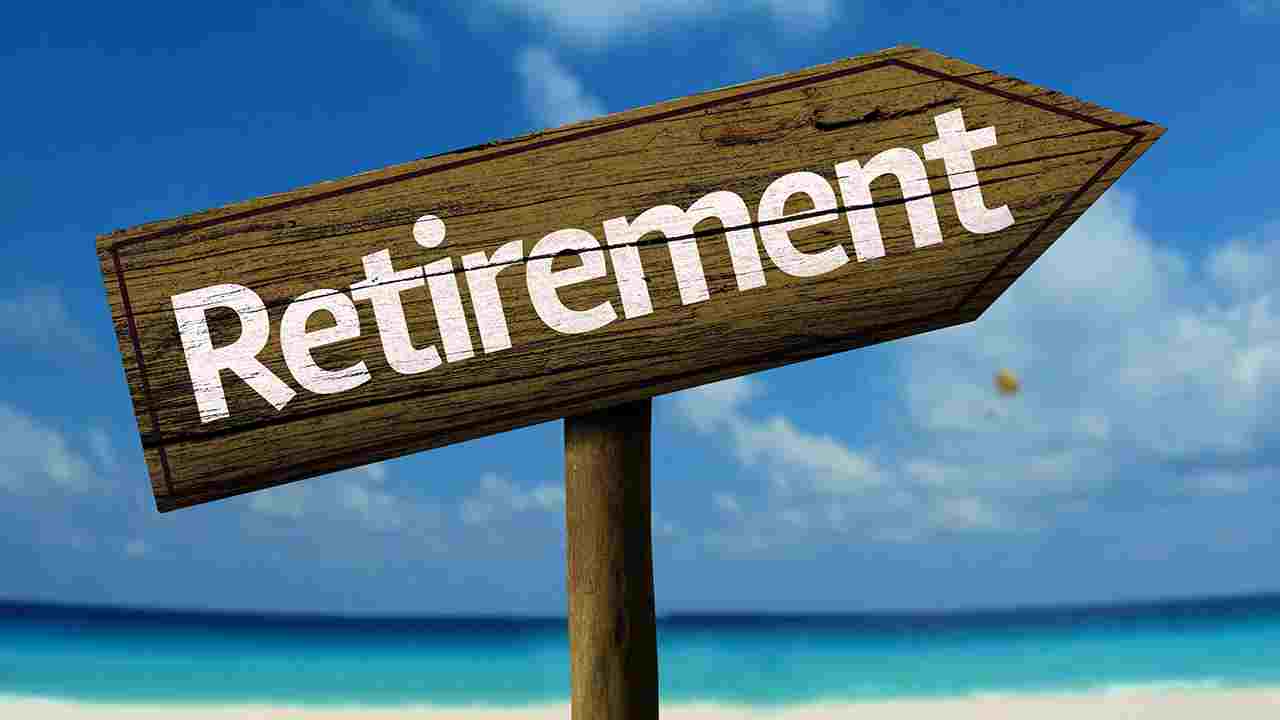RinggitPlus
27th October 2014 - 10 min read
The EPF for retirement issue has hit the spotlight again with the Malay Mail reporting that a ‘retirement crisis’ is booming with more and more pensioners leaving the workforce with less than enough savings to keep them out of poverty. With such a bleak picture painted by the media; you’re probably wondering if your own retirement pot is enough to see you through your golden years. Whilst no one can actually tell you with absolute guaranteees that your retirement fund is enough; we can help you make as good an estimate of what is enough for your lifestyle as possible.
Financial planning is all about being prepared for both the good and bad life brings. Before we help you to assess whether you have enough funds for your preferred post-retirement lifestyle, let’s take a look at the common myths many hold on to that may be damaging your ability to properly plan for retirement.

The Dreaded Retirement Myths
“I can work after retirement”
It’s nice to think when you are at your career peak in your early 20s or 30s that you will and can go on working well after retirement age. But truth is, according to the Department of Statistics Malaysia, labour force participation rate drops significantly once people reach the age of 54 – before retirement age. Why is that?
Although many reasons (some as simple as fatigue) play a role; health is one of the most decisive factors impacting the decision to continue working. People are forced to retire early due to disease such as stroke, heart disease or cancer. Even if we were to be optimistic and set aside the possibility of these fatal diseases; age and all the trappings that come with it (deterioration of vision, bone density, memory and hearing abilities, the list goes on) will make the constant pressure of long hours and stressful demands that is the norm of full-time employment more difficult to endure.
“I will spend less after retirement”
The second myth is tied into the fact that you are no longer working and thus do not have to worry about daily commutes, eating out and investing in your career (attire, job enhancement aids, etc.). This, you hope, will result in a drastic reduction in spending. But the problem arises when you have all this time on your hands and little to do. How would you pass the time? You may end up heading to the malls, traveling, or even enrolling in classes; all of which will end up costing you more money than less! If you decide that you will just spend the rest of your life in the house (because on some level you think that is feasible), you will still have to factor higher utility bills from the prolonged period of you staying home.
“By my estimations; I have enough”
Estimations are good to have; it’s what every financial advisor uses anyway since crystal balls or coconut touting bomohs are not an option. But estimations can be wrong and here’s where some amount of discretionary buffers are required. Here are some factors which can cause major upheavals in your estimations and thus should always be factored.
1. Financial crisis
Financial crisis have happened in the past in unexpected yet regular patterns – 1997 Asian Financial Crisis, 2001 Dot Com Bubble Burst, 2008 Global Financial Crisis, are just some we’ve thus far experienced. It usually begins with a capital market crash, which means the value of shares and bonds will drop; unit trust funds shrink and, property values decline affecting your retirement funds if any of these form part of your wealth plan. Following the crisis, unemployment rates will rise, and many may be forced to retire early.
2. Extended child dependency
According to HSBC’s “The Future of Retirement: Life After Work (FoR)” study, nearly 67% of Malaysian parents are supporting their adult children, financially. This includes helping them buy a house, fund daily expenses and even furnish loans. Stagnant wage levels despite increased costs of living and prices of property have made it difficult for children to “fly the coup” upon reaching adulthood much less support aging parents. While you might be expecting your children to support you when you retire, think twice because the reverse might be true.
3. Inflation

Remember the good old days when RM50 could fill up your shopping cart? Well thanks to inflation, now the same amount of money will barely give you enough for two days grocery needs. Inflation erodes the value of money. In 2013, the announced EPF dividend rate is 6.35% but thanks to inflation, you aren’t actually earning that much. Taking inflation of approximately 3% into account, the real return is actually 3.35%. Inflation can be the ‘silent killer’, eroding your retirement fund slowly but surely until you have little left to go on.
This bleak look at the possible problems associated with retirement planning is enough to get anyone down. But whilst it is always best to be prepared for the worst; do keep in mind that the opposite is possible and if so, you will live very well in future!
So how much is enough for retirement?
How does all the above answer the question of how much you really need? Now that you know the myths associated with retirement planning; you’re in better position to understand why a holistic plan is necessary.
But now onto specifics: depending on your preferred post-retirement lifestyle; there are many ways to calculate the sum of money required. However, if you are still using the old method – current expenses minus all work-related expenses (for example, income tax, work-related transportation costs, professional membership fees, etc.), you should probably revise your retirement plan.
Your preferred retirement lifestyle
1. Traditional retirement
An average person would most probably opt for traditional retirement: you work until 60, save up some adequate amount of money enough for, nothing fancy, just a plain, simple lifestyle and comfortable retirement. How much do you need for that? Well let’s start with the basic expenditures. Assuming RM50 per day of home-cooked meals, you will be looking at RM18,000 per year, just for food. At this age, we presume that you’ve already own a house and fully paid off the mortgage so you have one less burdensome expense. If otherwise, you should take into account your mortgage installments. Both clothing and utility are assumed to be RM100 and RM500 per month. Of cause, don’t forget the much important health care expenditure. At the age of 60, medical insurances are very costly. We take an average figure of RM5,000.
Apart from basic spending, you will incur discretionary expenditures. These are non-essential expenses that you can choose either to spend or not at your own discretion. Examples are traveling, entertainment, dining out and hobby related spending. Traveling is usually top of wishlist for most retirees. We estimated a modest annual amount of RM3,000 for local vacations. For entertainment and hobbies; it depends on the person but for example purpose, we include RM500 per month to this end. Dining out may happen rather frequently too. On an estimate of RM50 per meal; we add an additional RM400 per month for sporadic dine-outs up to 8 times per month. The table below breaks down the costs for this lifestyle choice on a daily, monthly and yearly basis. Using this simple table; you will be able to calculate any lifestyle choice by tweaking the details as you like.
| Items | Per day (RM) |
Per month (RM) |
Per year (RM) |
| Basic Costs | |||
| Meal (home-cooked) | 50 | 1,500 | 18,000 |
| Shelter* | nil | nil | nil |
| Clothing | 100 | 1,200 | |
| Utilities | 500 | 6,000 | |
| Healthcare | 5,000 | ||
| Discretionary Costs | |||
| Travel | 3,000 | ||
| Entertainment/hobby | 500 | 6,000 | |
| Dining out | 50 | 400 | 4,800 |
| Total Yearly Cost | 44,000 |
Summing it up, you will be looking at approximately RM44,000 annual expenses post retirement. Assuming 20 years of retirement life, the total amount would be RM880,000! This amount does not take into account the fact that you might live longer; be subjected to rental, continuing property loans, high medical costs, inflation and taxes. Oh, and that is if you haven’t already withdrawn an amount from EPF Account 2 to finance purchase of a house or education.
2. Early retirement
Some dream of early retirement, perhaps at the age of mid-40s. Early retirees usually travel more, go for social outings rather frequently, and would pursue their hobbies or do things that they always wanted to do. For this reason, we estimated a higher RM6,000 traveling expense for oversea vacation and RM700 for entertainment as well as 12 times a month of dining-outs. At such young age, retiree might have not fully pay off their mortgage yet. We therefore included RM5,000 per month of mortgage installment and using the same table above; 35 years of retirement life and 10 more years of mortgage payments after you quit your job will see you needing a total of RM2.413 million to retire! Guess early retirement does comes with a cost!
3. Semi retirement
Despite their age, some retirees would still wish to contribute to the workforce, if their health allows. These people would seek part-time employment, which also add on to their retirement fund. At the mean time, they wold take some time off their job and enjoy life. Again, if we assume 20 years of retirement, the total expense would sum up to RM1.036 million. However, let’s not forget about the additional income! Assuming RM1,200 per month (after all necessary deductions) and 5 year employment, total income will be RM72,000. With this additional income, you will only need a total of RM964,000 retirement fund.
With that said, is the money in your EPF account enough for retirement? (Psst! If you’re not even sure what that balance is; you can check your balance online (if you have registered or at kiosk at all EPF branches).
If you don’t have enough; what do you do now?
So you’ve made a rough estimation and checked your EPF account and realised that you do not have enough to fund your preferred lifestyle after retirement. Here are a few steps you can take which may help get you closer to your retirement goals.
- Start planning for retirement: If you have not already start, do so immediately. Plan your financial according to your preferred post-retirement lifestyle and adjust your current lifestyle to accommodate your retirement needs.
- Make trade-offs: After you make a rough estimation of the sum needed, try to increase your income and decrease your current spending to meet that amount. You can do so by generating side income, be it active (part-time job) or passive (investments) and cut down on non- essential or discretionary spending. Sacrificing now means a better future. Alternatively, you should compromise for a modest post-retirement lifestyle if you really cannot save up to match your desired retirement lifestyle. This can be done by slashing on post-retirement discretionary expenses, such as less vacations and dining outs.
- Monitor your spending: Keep an eye on your receipts and outlays every month. By doing this you can make all spending visible and cut unnecessary expenses. Contribute all your excess income into your saving funds and see if it can grow up to your desired amount upon retirement. This ensure you are on track to achieve your retirement goals.
Building your golden nest needs to start as early as possible (yes, right out of school, when you get your first job!). According to HSBC FoR survey, more than 60% of retirees quoted “start saving at an early age” as one of the best financial advice they’ve ever received. But as always; better late than never.








Comments (0)